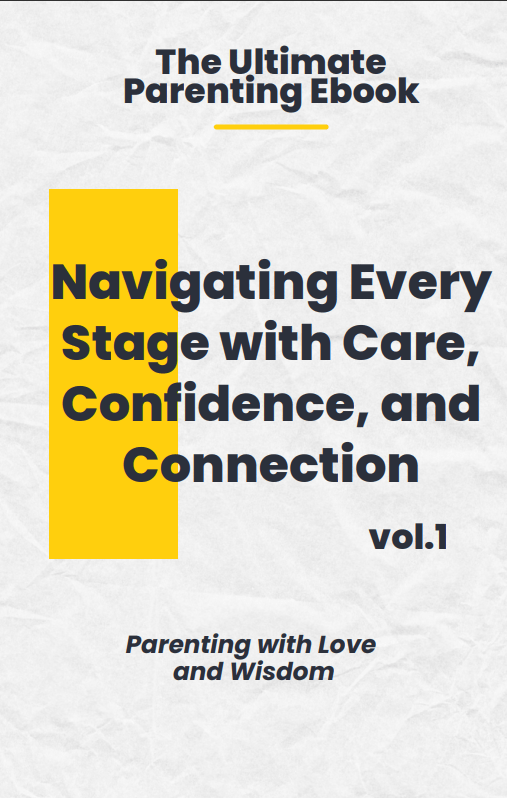Raising teens today? Avoid these 15 common parenting mistakes and ensure your teen’s healthy development. Click to learn effective strategies and tips.

Raising teens today presents unique challenges that require careful navigation. Teenagers often feel lonely, confused, angry, and misunderstood due to hormonal changes. These emotions can frustrate parents, especially when old parenting strategies no longer work.
However, as a parent, it’s crucial not to leave your teen to deal with these feelings alone. Your role is pivotal during these formative years, as teenagers develop their identities, values, and independence. It’s crucial to be aware of detrimental behaviors and practices that can negatively impact their growth.
In this blog, we’ll explore some of the worst things to do when raising teens today and provide practical advice on fostering a supportive and healthy environment for their development.
In This Blog
ToggleWhat Are the Worst Things to Do When Raising Teens Today?
1. Ignoring Mental and Emotional Health
One of the biggest mistakes parents can make is ignoring their teen’s mental and emotional health. The teenage years are filled with significant changes and pressures, making it essential to recognize signs of stress, anxiety, and depression. Overlooking these signs can lead to long-term issues.
For example, if your son is exhibiting signs of anxiety like irritability, anger, changes in sleep patterns, or withdrawal from activities, it’s important to address these concerns promptly. Encouraging healthy coping mechanisms such as exercise, hobbies, and open communication can make a significant difference. Seek professional help when necessary.
2. Excessive Control and Lack of Autonomy
Another common mistake in raising teens today is exerting excessive control over your teen’s life. While it’s important to provide guidance, micromanaging their daily activities and decisions can hinder their development of autonomy and critical thinking skills. Allowing your teen to make their own choices and learn from their mistakes is vital for their growth.

For instance, instead of dictating every aspect of your teen’s schedule, involve them in decision-making processes. This can range from choosing extracurricular activities to managing their own time. This approach fosters a sense of responsibility and independence in them.
3. Inconsistent Discipline
Inconsistent discipline is another pitfall that can confuse and frustrate teens. When rules and consequences are not applied consistently, it undermines the establishment of clear boundaries and expectations. This can lead to behavioral issues and a lack of respect for rules.
To avoid this, ensure that disciplinary measures are fair and consistent. If your teen knows the consequences of breaking curfew, for example, make sure to enforce those consequences every time. This consistency helps teens understand the importance of rules and the impact of their actions.
4. Neglecting Communication
Clear and effective communication forms the foundation of a strong parent-child relationship. Neglecting to actively listen to your teen’s concerns and opinions can create a significant disconnect. Avoiding difficult conversations about important issues like mental health, relationships, and future goals can leave your teen feeling unsupported.
Make an effort to engage in open and honest conversations with your teens. Ask questions that require more than a yes or no answer, and truly listen to what they say.
For example, instead of asking, “Did you enjoy school today?” try, “What was the highlight of your school day?” This leads to more in-depth and meaningful conversations.
5. Unrealistic Expectations and Pressure
Setting unrealistic expectations and applying excessive pressure for academic and extracurricular achievements can be detrimental to your teen’s well-being. The stress and anxiety caused by high expectations can lead to burnout and a negative self-image.
It’s essential to strike a balance between encouraging excellence and understanding your teen’s limits. Focus on praising their efforts and progress rather than just the end results. This approach helps build their self-esteem and motivates them to pursue their passions without fear of failure.
6. Dismissing Their Interests and Hobbies
Dismissing your teen’s interests and hobbies can have a negative impact on their confidence and sense of self-worth. Supporting their passions, even if they differ from your own, is crucial for their personal development.
For instance, if your teen is passionate about a particular sport or art form, show interest and provide opportunities for them to pursue it. Attend their games or exhibitions, and encourage their efforts. This support fosters a sense of validation and boosts their confidence.
7. Overemphasis on Technology and Social Media
While technology and social media are integral parts of modern life, overemphasis on them can be harmful. Allowing unrestricted screen time and not monitoring online activities can lead to negative consequences such as addiction, cyberbullying, and exposure to inappropriate content.

Set clear boundaries for technology use and encourage balanced activities. For example, establish screen-free times during meals or family gatherings. Encourage face-to-face interactions and outdoor activities to promote healthier habits and social skills.
8. Lack of Respect for Privacy
Respecting your teen’s privacy is essential for building trust and fostering independence. Invading their personal space or constantly monitoring their activities can create resentment and hinder their ability to develop autonomy.
Give your teen space to grow and respect their need for privacy. This doesn’t mean neglecting their activities but rather finding a balance. Trusting them with their own space while keeping communication lines open is key.
9. Modeling Negative Behaviors
Teens are highly influenced by their parents’ behavior. Modeling negative behaviors such as aggression, dishonesty, or substance abuse can have a profound impact on their development.
Strive to be a positive role model by demonstrating behaviors you want your teen to emulate. Show kindness, honesty, and responsibility in your actions. For example, if you expect your teen to be honest, practice honesty in your own interactions.
10. Avoiding Discussions on Dating and Sexuality
Avoiding discussions about dating and sexuality can leave your teen uninformed and vulnerable to unhealthy relationships. Providing guidance on healthy relationships, consent, and safe practices is crucial for their well-being.
Initiate open and honest conversations about these topics. Share your values and expectations while being open to their questions and concerns. This helps them navigate relationships responsibly and confidently.
11. Failing to Teach Financial Responsibility
Not involving your teen in budgeting and financial planning can hinder their ability to manage finances effectively in the future. Teaching financial responsibility is essential for their independence and success.
Introduce your teen to basic financial concepts such as budgeting, saving, and spending wisely. Involve them in managing their own allowance or part-time job earnings. This practical experience prepares them for financial challenges in adulthood.
12. Ignoring the Importance of Physical Health
Neglecting to encourage regular physical activity and healthy eating habits can negatively impact your teen’s overall well-being.
Encourage your teen to engage in regular exercise and make healthy dietary choices. Participate in physical activities together, such as hiking or biking, to make it enjoyable and bonding.
13. Lack of Support for Academic Challenges
Ignoring your teen’s struggles with schoolwork can lead to frustration and academic decline. Providing adequate academic support and resources is crucial for their success.

Stay informed about your teen’s academic progress and offer help when needed. Consider tutoring or additional resources if they are struggling. This support shows that you value their education and are committed to helping them succeed.
14. Avoiding Discussions on Self-Destructive Behaviors
Not addressing the dangers of smoking, drinking, and drug use can leave your teen vulnerable to these harmful behaviors. Providing information and support to prevent self-destructive behaviors is essential.
Have open discussions about the risks and consequences of these behaviors. Share real-life stories or news articles to illustrate the impact. Encourage healthy lifestyle choices and offer alternatives to cope with stress and peer pressure.
15. Overlooking the Importance of Empathy and Compassion
One critical mistake in raising teens today is failing to teach empathy and compassion. In a world that often emphasizes competition and individual success, neglecting these values can lead to a lack of understanding and kindness in your teen.
Encourage your teen to volunteer or engage in activities that promote helping others. Discuss the importance of seeing situations from other people’s perspectives and acting with kindness. This not only helps in their personal development but also fosters a more compassionate and empathetic society. Teaching empathy and compassion is crucial when raising teens today, as it helps them build strong interpersonal relationships and contributes positively to their community.
Conclusion
Raising teens today requires a thoughtful and balanced approach. By avoiding these detrimental behaviors and practices, you can create a supportive and healthy environment for your teen’s growth. Remember, effective communication, consistent discipline, and respect for their individuality are key to guiding them through these critical years.
Which mistake did you find most concerning? Share your thoughts on raising teens today in the comments below.
You may also be interested in : 7 Ways to Parenting Today’s Teens in a Toxic Culture of Perfectionism
FAQs
1. What are common signs of stress in teenagers?
Common signs include irritability, changes in sleep patterns, withdrawal from social activities, excessive worrying, changes in appetite, and difficulty concentrating.
2. How can I improve communication with my teenage son?
Foster open dialogue by asking open-ended questions, actively listening, and creating a judgment-free environment. Regular, meaningful conversations help build trust and understanding.
3. What are effective ways to discipline a teenager?
Use positive reinforcement, set clear expectations, and enforce consistent consequences. Focus on teaching responsibility and accountability rather than punishment.
4. How can I support my teen’s interests and hobbies?
Recognize and nurture their passions. Encourage participation in extracurricular activities and show enthusiasm for their interests to boost confidence.
5. How can I help my teen develop independence?
Encourage decision-making and problem-solving skills. Gradually allow more freedom and responsibilities to prepare them for adulthood.
6. What is the impact of excessive screen time on teens?
Excessive screen time can lead to addiction, cyberbullying, and exposure to inappropriate content. It can also affect sleep patterns and physical health.
7. How can I teach financial responsibility to my teenager?
Introduce budgeting and saving concepts. Provide an allowance and help them manage it to foster independence and wise decision-making.
8. Why is a strong moral foundation important for my teen?
A strong moral foundation helps them make ethical decisions, understand the importance of honesty and integrity, and lead a life of integrity.
9. How can I support my teen’s academic growth?
Stay informed about their academic progress, offer help with homework, and attend school events. Show that you value their education and growth.
10. What are healthy coping mechanisms for stress in teens?
Encourage exercise, hobbies, mindfulness, and open communication. These practices help manage stress and promote mental well-being.
11. How can I discuss dating and sexuality with my teenager?
Initiate open and honest conversations about these topics. Share your values and expectations while being open to their questions and concerns.
12. Why is physical activity important for teenagers?
Regular exercise improves physical and mental health, builds discipline, and boosts self-confidence. Encourage participation in sports or physical hobbies.
13. How can I limit my teen’s screen time effectively?
Set clear boundaries for technology use, encourage face-to-face interactions, and promote outdoor activities to develop healthier habits.
14. What are the benefits of volunteering with my teen?
Volunteering together fosters empathy, a sense of responsibility, and strengthens your bond. It teaches the value of helping others.
15. How can I help my teen avoid self-destructive behaviors?
Have open discussions about the risks of smoking, drinking, and drug use. Share real-life stories and encourage healthy lifestyle choices.




